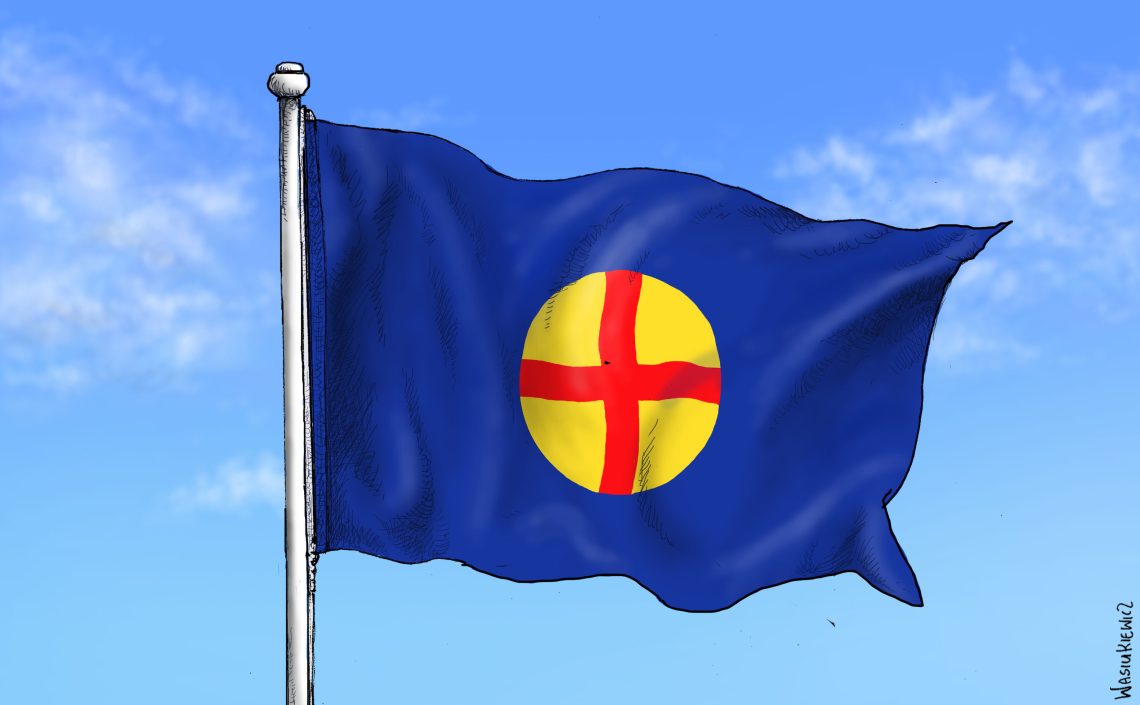Defense of freedom: A new security paradigm for Europe
Europe must strengthen its defense. Achieving that goal will require cooperation beyond the European Union.

With the war in Ukraine raging, attention has turned back to the concept of European defense. French President Emmanuel Macron has pushed hard for a common defense policy for the European Union, but that strategy has many failings.
As a peninsula on the far west side of the Eurasian continent, Europe cannot reliably be defended without Iceland, Norway, the United Kingdom and Turkey: four countries that are not part of the EU.
Norway and Iceland have strategic locations on Europe’s northwest flank, and Turkey on its southeast. They control key access points to the North Sea and the Mediterranean Sea, respectively. The UK has one of the world’s largest and best militaries – it will be crucial in defending Europe.
There can be no “defense sovereignty” of the European Union, even if a common defense policy is arranged.
NATO’s role
All four of the mentioned countries are part of NATO. The North Atlantic alliance has served its members well over the past 70 years, which is why enthusiasm to join remains high. The 30-member group has added 10 countries over the past 20 years, most recently admitting North Macedonia in 2020 and Albania in 2017.
Last week, Sweden and Finland, which for decades had believed that staying out of the alliance best served their defense interests, both applied for NATO membership. On one hand, the move was a blow to the Kremlin, which at least ostensibly started the war in Ukraine to halt NATO expansion.
On the other hand, it is not a geopolitical earthquake: both countries have been cooperating closely with NATO for years. They will provide some more geographic security in the Baltic Sea – nothing to sniff at – but their location is not as crucial as that of Norway or Turkey.
A more robust European defense means eventually being able to take security action independent of, or at least having a stronger say within, the North Atlantic alliance.
NATO has gotten it right in that it has strong leadership – the United States – but does not insist on political integration. Yet Europe could do much better to ensure its own defense. The Americans frequently complain, rightly, that Europe gets the benefits of U.S. military protection without sharing in enough of the costs. Another ironic result of this war on Ukraine is that more European countries have committed to achieving the NATO benchmark of spending 2 percent of their gross domestic product (GDP) on defense.
That is a step in the right direction, but more can be done. Europe’s defense interests do not always fully align with those of the U.S. In the current context, Washington has made clear that it wants to permanently “weaken” Russia. That type of rhetoric inflames anti-Western sentiment in Russia. For the U.S., an ocean away, such statements have fewer consequences than for Europe, right at Russia’s door. Europe will, eventually, have to find a way to live with Russia. That may mean taking a different military tack than the U.S.
Independent action
Moreover, there is now less continuity in American defense policy, as presidents more often change course from those taken by their predecessors. Holding European security hostage to U.S. elections makes no sense.
Since NATO is led by the U.S., a more robust European defense means eventually being able to take security action independent of, or at least having a stronger say within, the North Atlantic alliance. It is telling that when trouble cropped up in its neighborhood, in places like Serbia and Libya, Europe depended on NATO instead of acting on its own.
Europe’s various regions have very different defense postures. While most of the EU has woken up to the threat that Russia presents, eastern members’ defense policies are more geared toward that danger. Southern members, for example, have built their security responses around immigration issues.
One solution could be several sets of defense organizations, loosely configured around like-minded countries, but without the centralization and bureaucracy that the “ever closer Union” advocates call for. One could envision an association of European countries joining together to secure the Mediterranean flank, or the “Intermarium” countries from the Baltic Sea to the Black Sea joining forces to protect Europe’s east. These would not only include EU members – Turkey, the UK and others could participate.
Now is the time to begin finally beefing up Europe’s defense. More prioritization of security within national budgets, and ad-hoc EU member groupings are both solutions, among others, which will strengthen European defense without requiring unnecessary centralization and harmonization.
